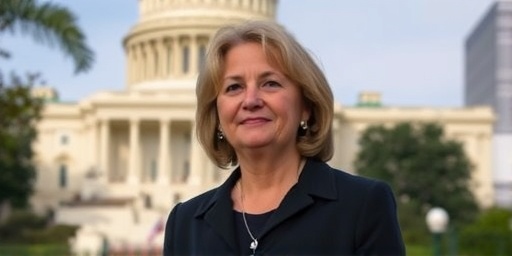In a stunning political earthquake, Georgia Congresswoman Marjorie Taylor Greene announced her resignation from office, effective January 5, 2026, just days after spearheading the controversial release of the long-sealed Epstein files. The move, which has sent shockwaves through Washington and beyond, stems from a bitter public feud with President Donald Trump, who accused her of undermining his administration’s legacy. Greene, a firebrand Republican known for her unyielding conservative stance, cited irreconcilable differences over the files’ implications as the catalyst for her departure from the House of Representatives.
Greene’s decision comes at the height of a national reckoning with the Jeffrey Epstein scandal, where the released documents exposed alleged connections between high-profile figures and the late financier’s sex trafficking network. Her relentless advocacy for transparency, which culminated in a bipartisan vote to unseal the files last month, has polarized the GOP and drawn praise from transparency advocates. “I’ve fought for the truth my entire career,” Greene stated in a fiery press conference from her Atlanta district office. “But when the truth threatens the very foundations of power, even allies turn away.”
Greene’s Relentless Push to Unseal the Epstein Files
Marjorie Taylor Greene‘s journey to the forefront of the Epstein files saga began long before her recent announcement. Elected to represent Georgia‘s 14th Congressional District in 2020, Greene quickly established herself as a vocal critic of elite corruption. Her interest in the Epstein case intensified after the 2019 arrest of the financier, whose mysterious death in custody fueled conspiracy theories that resonated with her base.
In early 2024, Greene introduced H.R. 4782, the Epstein Transparency Act, a bill aimed at compelling the Department of Justice to release all non-classified documents related to Epstein’s operations. “The American people deserve to know who was involved,” she declared during a House Judiciary Committee hearing. Despite initial resistance from establishment Republicans wary of the political fallout, Greene rallied support from unlikely allies, including progressive Democrats like Rep. Alexandria Ocasio-Cortez, who co-sponsored the measure.
The campaign wasn’t without hurdles. Greene faced intense lobbying from within her own party, with whispers that the files could implicate donors and allies close to Trump. Undeterred, she organized town halls across Georgia, where constituents voiced outrage over perceived cover-ups. One such event in Rome, Georgia, drew over 5,000 attendees, many waving signs reading “Release the Files – No More Secrets.” By mid-2025, mounting public pressure led to a 218-215 House vote approving the release, a victory Greene hailed as her greatest legislative achievement.
Behind the scenes, Greene’s team worked tirelessly, poring over redacted versions of the files leaked to select media outlets. Legal experts estimate that the full archive contains over 10,000 pages, including flight logs from Epstein’s private jet, the so-called “Lolita Express,” and depositions from victims. Greene’s office released a preliminary summary, highlighting names of politicians, celebrities, and business moguls who allegedly visited Epstein’s properties. This preemptive strike amplified the drama when the official documents hit public domain on December 15, 2025.
Bombshell Revelations Rock Washington and Hollywood
The Epstein files release has been nothing short of explosive, unveiling a web of influence that spans decades. Among the most shocking disclosures are detailed records of Epstein’s interactions with former presidents, including Bill Clinton and the late George H.W. Bush, though no direct criminal ties were confirmed for Trump in the initial batch. However, references to Trump‘s Mar-a-Lago resort appearing in visitor logs have ignited fierce debate.
One standout revelation involves a 2002 email exchange between Epstein and a high-ranking GOP operative, discussing potential campaign contributions in exchange for favorable policies. Victims’ testimonies, redacted for privacy, describe grooming tactics employed at Epstein’s New York mansion and Little St. James island. The files also include financial ledgers showing millions funneled through shell companies, prompting the SEC to launch fresh investigations into Epstein’s banking partners.
Public reaction has been visceral. A Gallup poll conducted immediately after the release found that 68% of Americans believe the government has withheld key information on Epstein for years, with trust in federal institutions plummeting to 22%. In Georgia, Greene’s district saw a surge in calls to her office, with supporters praising her courage and critics accusing her of grandstanding for personal gain.
Hollywood hasn’t escaped unscathed. Names like Kevin Spacey and Woody Allen, previously rumored to be connected, appear in correspondence, leading to renewed scrutiny of their past behaviors. Victim advocacy groups, such as the National Center for Victims of Crime, issued statements commending the transparency but urging faster prosecutions. “These files are a starting point, not the end,” said organization director Sarah Jenkins. “We need accountability now.”
The Trump-Greene Feud Escalates into Open Warfare
The public split between Marjorie Taylor Greene and President Trump has been the most dramatic fallout from the Epstein files saga. Once a staunch Trump loyalist—Greene famously defended him during his two impeachments—their alliance fractured when Trump publicly distanced himself from the release. In a Truth Social post on December 20, 2025, Trump wrote, “M.T.G. has gone rogue. Releasing these witch-hunt files hurts real patriots and helps the radical left. Sad!”
Greene fired back during a Fox News interview, accusing Trump of protecting “the swamp he promised to drain.” She referenced a specific file entry mentioning Trump‘s 1990s social circle overlapping with Epstein’s, though she clarified it was not evidence of wrongdoing. The exchange escalated when Trump endorsed a primary challenger to Greene in a hypothetical 2026 reelection bid, calling her “a distraction from MAGA.”
Insiders reveal the rift deepened during a private Mar-a-Lago meeting in November 2025, where Greene urged Trump to support the bill. According to a source close to the congresswoman, Trump dismissed her concerns, saying, “Some truths are better left buried.” This betrayal, Greene later confided to allies, was the final straw leading to her resignation.
The feud has ripple effects across the Republican Party. Polling from Quinnipiac shows a 15-point drop in Trump‘s approval among hardline conservatives who view Greene as a truth-teller. GOP leaders like House Speaker Mike Johnson have called for unity, but analysts predict a splintering of the MAGA coalition heading into the midterms.
Georgia’s 14th District Faces Uncertain Future Post-Resignation
Marjorie Taylor Greene‘s resignation leaves Georgia‘s 14th Congressional District in a precarious position. The rural, deeply conservative area—encompassing parts of northwest Georgia from Dalton to the Alabama border—has been a Republican stronghold since the 1990s. Greene’s 2022 reelection victory margin of 65% underscored her iron grip on the electorate.
With her departure set for January 5, 2026, just before the new Congress convenes, Governor Brian Kemp must call a special election within 100 days. Potential contenders include state Senator Brandon Beach, a Trump ally, and local businesswoman Kelly Loeffler, who previously served as a U.S. Senator. Early buzz suggests a crowded field, with MAGA purists pushing for a Greene-endorsed successor to carry her transparency torch.
Economically, the district relies on manufacturing and agriculture, sectors hit hard by recent tariffs Trump championed. Greene’s advocacy for small farmers earned her loyalty, but her Epstein files focus shifted attention to national scandals. Local leaders worry about voter turnout; a University of Georgia survey indicates 42% of residents feel disillusioned with Washington, potentially benefiting independents or Democrats in the special election.
Community reactions are mixed. At a town hall in Cartersville, residents praised Greene’s boldness: “She stood up when no one else would,” said farmer Tom Reynolds. Others, like retiree Martha Hayes, expressed concern: “Without her, who fights for us against the elites?” The vacancy could reshape Georgia politics, especially as the state remains a battleground in national races.
Ripples Through U.S. Politics: Transparency’s Lasting Legacy
As Marjorie Taylor Greene steps away from Congress, her resignation marks a pivotal moment for accountability in American politics. The Epstein files have already spurred over 20 state-level investigations and prompted calls for a federal commission on elite sex trafficking. Bipartisan bills mimicking Greene’s act are gaining traction in the Senate, with Sen. Lindsey Graham voicing tentative support.
Looking ahead, Greene plans to launch a nonprofit focused on government transparency, potentially positioning her for a 2028 gubernatorial run in Georgia. “This isn’t the end; it’s a new beginning,” she told supporters in her farewell address. For Trump and the GOP, the scandal tests their unity—will it fracture the party further, or rally them against perceived enemies?
Broader implications extend to public trust. With 75% of young voters under 30 citing Epstein as a symbol of systemic failure (per Pew Research), future elections may hinge on reform promises. As special elections unfold and probes deepen, the nation watches to see if Greene’s bold stand ushers in real change or fades into political memory.








